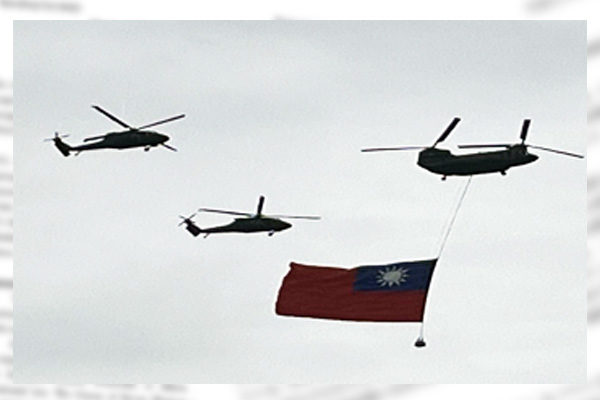The Eastern Theater Command of the Chinese People’s Liberation Army (PLA) conducted the “Joint Sword-2024A” exercises of the army, navy, air force, rocket force and other services around Taiwan on May 23 and 24, following the inauguration of new Taiwanese President Lai Chingte. One of the features of the exercises was the focus on the sea and airspace east of Taiwan, including the establishment of an exercise zone on the east side of Hualien Port, the largest port on Taiwan’s east coast, where, in addition to “joint combat-readiness patrols” by the navy and air force, the China Coast Guard carried out “comprehensive law enforcement exercises.”
Chinese exercise purpose includes prevention of Taiwanese leaders’ escape
Why did China put emphasis on the eastern side of Taiwan? Zhang Chi, an associate professor at China’s National Defense University, commented on this question as follows:
“The exercises east of Taiwan were aimed to cut off the following three lines: a lifeline for energy imports, a line for Taiwanese independence forces’ external escape, and a line for support from the United States and its allies for Taiwanese independence forces” (China Central Television, May 23).
The third line represents support from the U.S. and its ally Japan on the Pacific side. The second line means a route for the Taiwanese government’s escape from Taiwan. If Taipei is occupied by Chinese forces, the Taiwanese government may retreat to Hualien to resist Chinese forces. If Hualien as well is occupied, the Taiwanese government may escape from Taiwan. Where would be the escape destination? China might have assumed Japan, the nearest neighbor, as the destination and set up the exercise areas with an emphasis on the east side of Hualien.
I believe that Japanese actions that the Chinese are most concerned about in the event of a Taiwan contingency may be support for U.S. forces and the acceptance of a Taiwanese government-in-exile.
The Taiwan contingency will not end up with military operations alone. After the occupation by the PLA, the Chinese Communist Party (CCP) has to “liberate” Taiwan by arresting and trying the core of the Taiwanese government, seizing Taiwan’s administrative organizations, and disarming Taiwanese army.
What would happen if the Taiwanese government escaped from Taiwan and established a government-in-exile in a foreign country? It may not be a Republic of China (ROC) government-in-exile but a Taiwanese government-in-exile declaring Taiwan’s independence. Even if there is a question of whether the Taiwanese government-in-exile would be recognized by other countries, democracies may support Taiwan and inspire Taiwanese people controlled by the CCP. It is natural that Beijing wants to avoid such scenario.
Japan’s support for resistance is conceivable
The current Taiwanese government will obviously maintain its will to resist Chinese forces on the island of Taiwan until the end. However, Japan should assume as one of scenarios the possibility of accepting and supporting a Taiwanese government-in-exile in the event of a Taiwan emergency.
The U.S., Britain, and Canada where Hong Kong activists are in exile are too far. A government-in-exile in a faraway country will lose support from and influence on Taiwanese people. Japan should be prepared for all possibilities.
Maki Nakagawa is a researcher at the Japan Institute for National Fundamentals and former Commander of Basic Intelligence Unit, Japan Ground Self-Defense Force.


